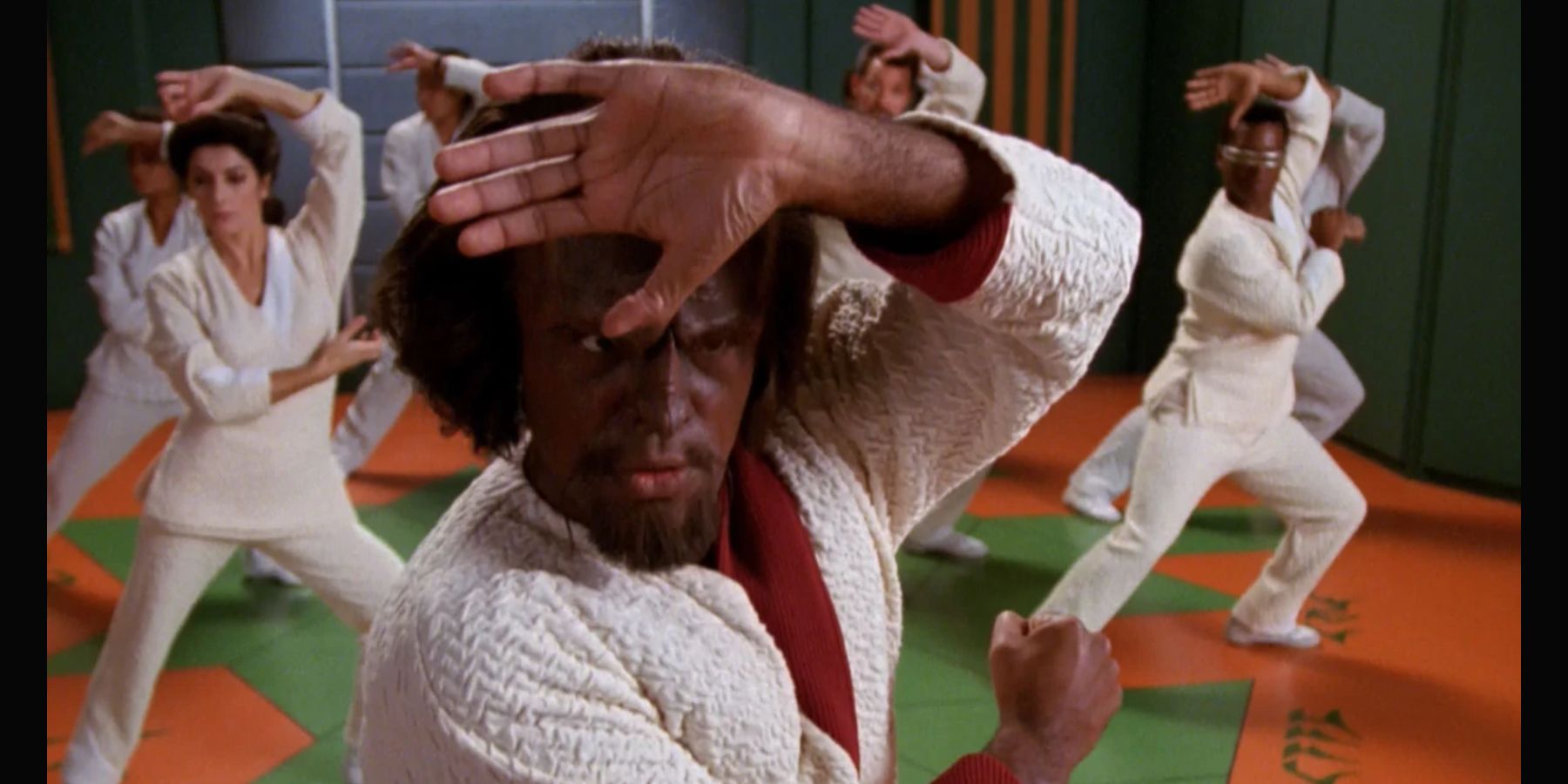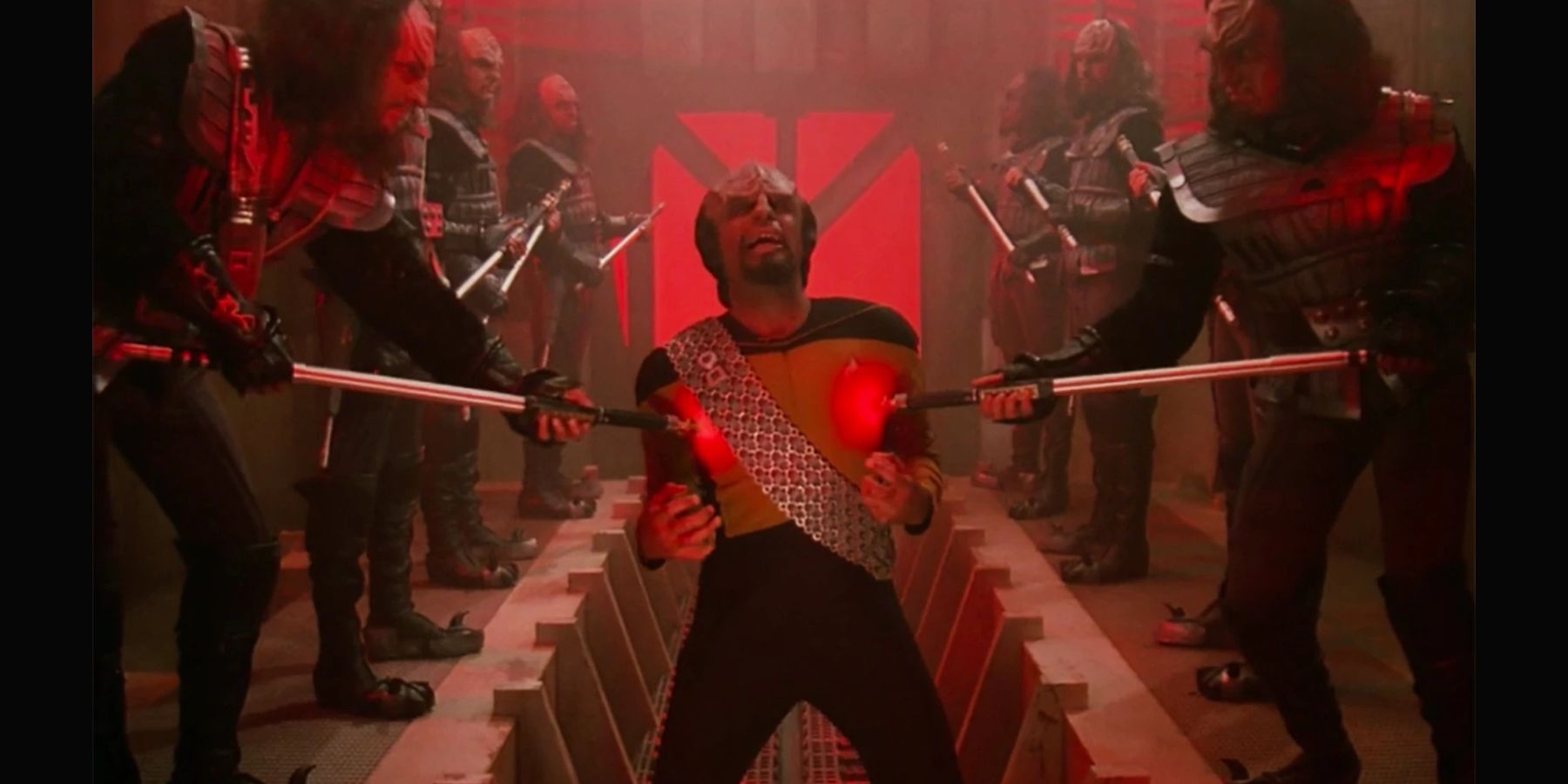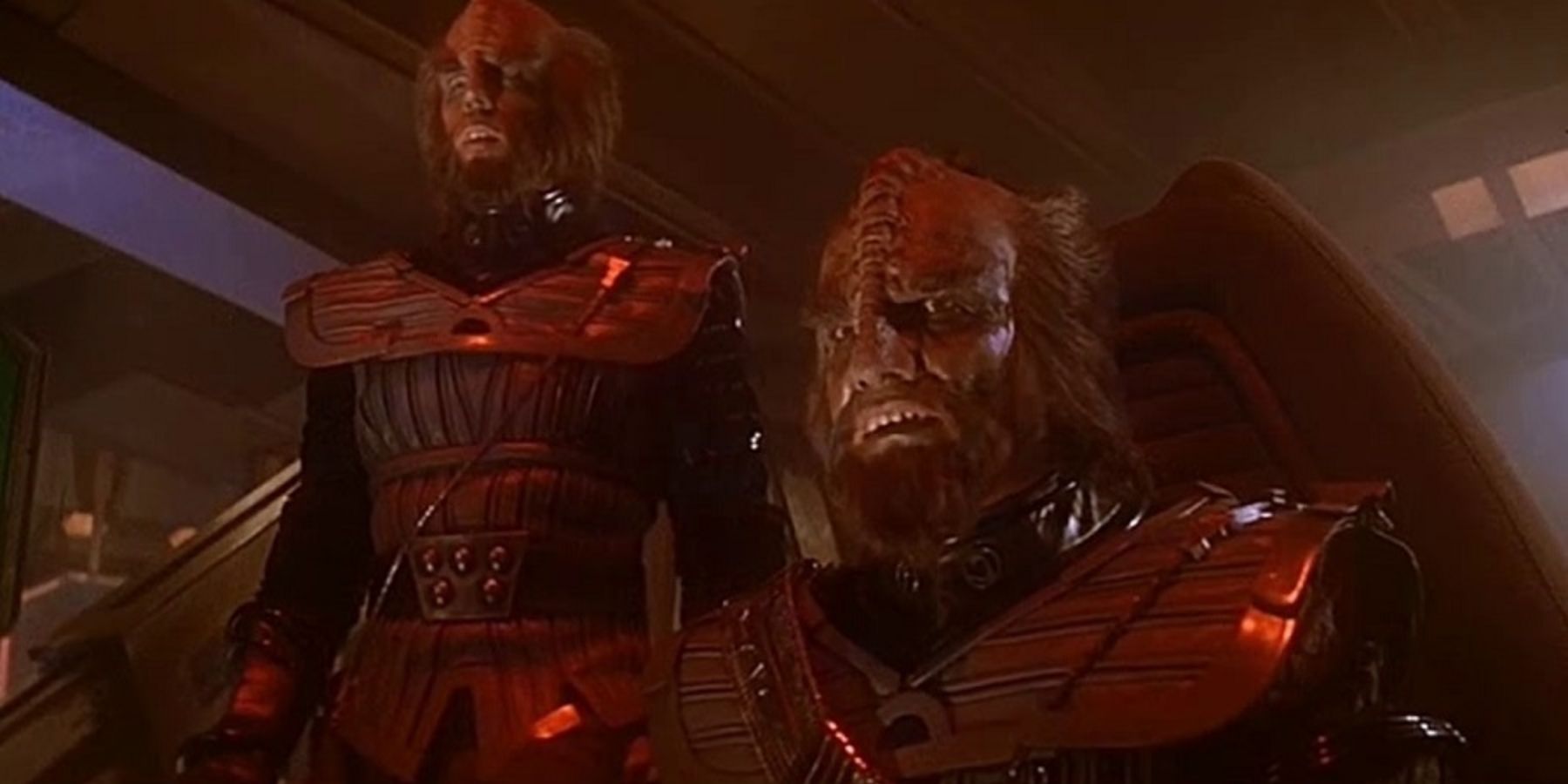The iconic Klingons of the Star Trek franchise are some of the most instantly recognizable pillars of the science fiction genre, which is especially remarkable considering they have gone through various makeovers over the years. They have gone from main antagonists in The Original Series to unlikely allies throughout the proceeding shows. They are characterized by their pursuit of honor, as well as their superior strength, but it might come as a surprise to fans that there is a strange aspect of Klingons: physically speaking, they are no stronger than humans.
This might, at first, seem like a complete contradiction to everything known about the Klingon race, a species prone to violence and desire to tackle every situation with a macho display of aggression. They are shown repeatedly to be throwing around others, punching their way through various adversaries with ease, and taking multiple punches without being affected. They are, however, no stronger proportionately to humans. Not only have Commander Riker and the questionably moral captain Sisko knocked out Klingon opponents with a punch, but Captain Picard (in The Next Generation) has done so as well, the less built figure of the three. Klingons inherently have the same strength of a human the same size as them, although it is true that they are statistically slightly taller, but this discrepancy is only minor with all things considered.
In terms of raw strength, Klingons and humans are on par with each other, biologically speaking. However, if one were to examine their stats through an RPG score lens, then one might say that the Klingons have +2 to endurance, as they are able to take a lot more damage than humans can. This may appear to be contradicted various times throughout the franchise, with Klingons seemingly possessing much greater strength, (this has actually become its own TV trope called “The Worf Effect”). However, ths is most likely to be a result of their culture rather than biology.
It’s accurate to say that Klingons do not possess any more natural strength than humans, but that on average they are stronger. The Klingon way of life teaches and instills a priority towards fighting, and a warrior's spirit. They are, from an early age, driven towards violence, or at least encouraged to be able to do what a Klingon deems is best: to battle. Because of this, most Klingons have trained for most of their life. The average Klingon is a more seasoned warrior than the average human.
This doesn’t make them any stronger than trained humans, however. Riker is a great example, as he too has had extensive training and is a powerful fighter, being on equal footing with Worf in terms of strength (best leave out both their relationships with Dianna Troi). Imagine Worf and Riker back to back, facing off against an endless horde of foes. They would both have equal strength, able to fight off their adversaries with similar volition, both packing similar punches. Worf would last longer however, not because he is stronger, but because he can withstand much more damage. Riker would not only sustain more injuries despite being hit the same amount, but would also succumbing to them much faster — damage pretty much any organ on a human, and they will likely die if not treated quickly, where a Klingon would just shake it off.
The Klingon endurance is what sets them aside from humans, making them much more effective warriors and able to defeat more foes before being beaten. They are durable tanks, who, after years and years of warrior culture, have evolved the durability to withstand a considerable amount of damage. This includes their skulls, which are far hardier than their brittle human counterparts, as well as the extensive ridges that run down from their foreheads all the way down their back, suggesting a much thicker and heavy-duty set of bones. Their nerves system and organs are also built to withstand a lot more too, having multiple redundancies throughout; this means they can withstand multiple organ failure before succumbing to their wounds. This also explains why, despite aging at a similar rate to humans, the Klingons seem to live for much longer, with much less reliance on vital organs to keep them going.
While Klingons are normally shown to be the strongest of all species within the Star Trek franchise, they are surprisingly weak when compared to the Vulcans. This is another perfect example of how Star Trek subverts expectations, hoping time and time again that raw power is not what gives a person power. Vulcans are suggested to be x3 times stronger than a human (and consequently a Klingon) but they are a race that, mostly, avoids all forms of physical violence, due to their dark and murky past, favoring intelligence and logic over warfare. The big secret behind a Klingons strength is that they are not actually overly strong at all; rather, they are near impenetrable tanks of thick bones and skin.



